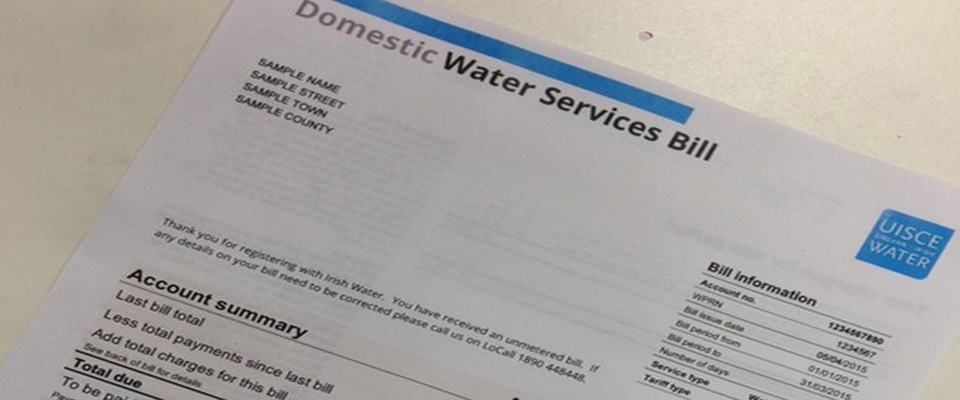Irish Water has admitted to sending bills to 90,000 ghost houses, which they do not expect to receive payment from.
Those homes would have been expected to bring in revenue of almost €6m for the first billing period and €24m for a full year, but will have to be written off.
Michael McNicholas, CEO of the utility’s parent firm, Ervia, said that work on developing an accurate register of Irish Water customers was continuing.
“We’ve built a database from scratch that didn’t exist before,” Mr McNicholas told RTÉ Radio. “We’re trying to understand exactly how many customers we have.
We’ve a theoretical revenue target of €271m [from domestic customers in a year], but we need to know exactly how many single-adult families and multi-adult families we have.
“We know today, for instance, we’re billing water to 90,000 homes that we believe are abandoned.”
Irish Water later explained that the unoccupied ghost estate homes had been billed because they were connected to water and waste services.
“It will take a number of billing cycles to resolve these issues,” the company said.
Mr McNicholas made his comments as he defended the 46% payment rate for the first quarterly bills issued in April, amid claims it proved the public were going to resist paying water charges.
“We’ve issued one bill, the first bill, for a new utility for the first time,” he said.
“It’s far too early to be drawing conclusions on where we’re going with that. It’s just a start.”
He said it would take at least a year to get a clear picture of payment rates.
The Ervia boss also clarified a remark he made at the MacGill Summer School in Donegal last week, when he spoke off the cuff to politicians on a panel with him, saying that the utility had big plans for the country’s crumbling water infrastructure — if it was still around after the general election.
“What I was saying very clearly is that we have a solution. The only solution that will fix this problem for this country is a single national utility,” he said.
“We’ve established that national utility. It is already making a difference and it has done more in 18 months than in the last two decades to fix the problem.
“So my position is very clear: This country needs a national utility. It has a national utility and it will have a national utility after the next election, because there is no other rational solution to the problem that this economy and our society faces.”





